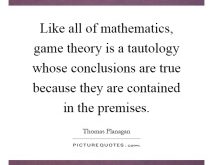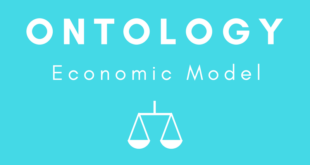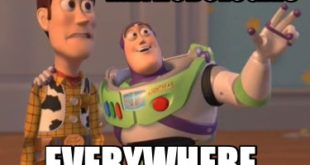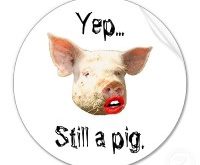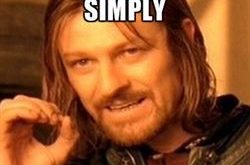La teoría de juegos — una nota al pie en la historia de las ciencias sociales Siendo en su corazón una subdisciplina dentro de las matemáticas puras, los teóricos de juegos no están demasiado preocupados por si la teoría de los juegos representa fenómenos del mundo real. Bien. Pero como la mayoría de los científicos sociales tienen una opinión diferente, los teóricos de juegos también deben aceptar que, para la mayoría de los científicos sociales, la teoría...
Read More »Non-ergodic economics, expected utility theory and the Kelly criterion (wonkish)
Non-ergodic economics, expected utility theory and the Kelly criterion (wonkish) Suppose I want to play a game. Let’s say we are tossing a coin. If heads come up, I win a dollar, and if tails come up, I lose a dollar. Suppose further that I believe I know that the coin is asymmetrical and that the probability of getting heads (p) is greater than 50% — say 60% (0.6) — while the bookmaker assumes that the coin is totally symmetric. How much of my bankroll...
Read More »Economics and reality
For a good many years, Tony Lawson has been urging economists to pay attention to their ontological presuppositions. Economists have not paid much attention, perhaps because few of us know what “ontology” means. This branch of philosophy stresses the need to “grasp the nature of the reality” that is the object of study – and to adapt one’s methods of inquiry to it. Economics, it might be argued, has gotten this backwards. We have imposed our pre-conceived methods on economic...
Read More »The dangers of using ontologically ungrounded idealizations
The dangers of using ontologically ungrounded idealizations Using ‘simplifying’ tractability or ‘heuristic’ assumptions — rational expectations, common knowledge, representative agents, linearity, additivity, ergodicity, etc — because otherwise they cannot ‘manipulate’ their models or come up with ‘rigorous ‘ and ‘precise’ predictions and explanations, does not exempt economists from having to justify their modelling choices. Being able to ‘manipulate’...
Read More »Central fallacies of modern economics
Central fallacies of modern economics To criticise/oppose the current mathematical modelling emphasis is to adopt an antiscience stance. It is not. Mathematics is not essential (or inessential) to science; science involves using tools that are appropriate to the given task. A science of economics is perfectly feasible, and the current emphasis on mathematical modelling in economics serves, given the nature of social reality, mostly to prevent that...
Read More »The systemic failures of economic methodologists
The systemic failures of economic methodologists I argue that economic methodologists failed the economics profession by not actively pointing out to the economics profession or to the general public that, if an economist’s primary goal was to provide policy advice to society, then the standard methodology being used by applied macroeconomists had serious problems. I see methodologists’ failure as a systemic failure because the reason they did not point out...
Read More »‘Theoretical cherrypicking’ in economics
‘Theoretical cherrypicking’ in economics The proposition that theoretical models are necessary for understanding our economic system does not imply that having some particular theoretical model automatically means that we understand anything useful. If one is creative in choosing the ‘right’ assumptions and reasonably clever, then one can produce all kinds of results … This potentially creates a problem that might be called ‘theoretical cherrypicking.’ In...
Read More »‘Approximate truth’ in economics
‘Approximate truth’ in economics According to this line of defence, all models are false but to some extent ‘approximately true’ – and approximately true models are harmless from the point of view of the realist’s aims … This argument is to a large extent confused. It is correct that there are cases in which a false assumption can indeed be regarded as ‘approximately true’, namely when the assumption concerns the value of a quantitative causal factor …...
Read More »DSGE hypocrisy
There is an element of hypocrisy among DSGE advocates … Long before the advent of DSGE, microeconomic theorists demonstrated that the conditions for the derivation of aggregates from individual choices are so constraining that they cannot possibly be met in a world populated by people. Yet, never to my knowledge have DSGE advocates addressed the issue … For the DSGE advocates, the failure of an opposing approach to adhere to their a priori theoretical presuppositions are...
Read More »Why methodology?
It is not possible to determine the scientific method that it is appropriate to employ for a given task (in a particular context) without knowing the nature of the task. And to know the nature of any scientific task it is always essential to have an insight into (i.e., to seek to determine) the nature of the material that is to be investigated … Now if there is one feature that provides the greatest obstacle in the path of economics achieving its potential as an explanatory...
Read More » Heterodox
Heterodox

